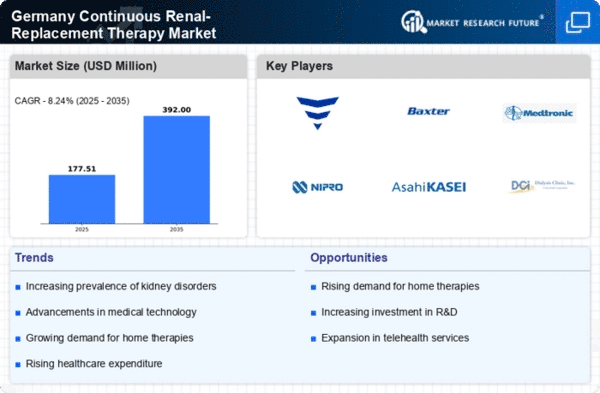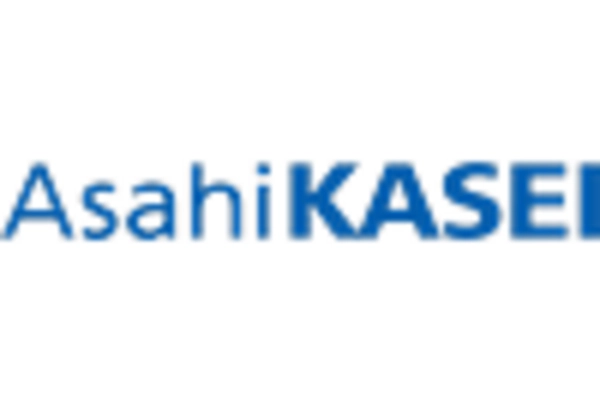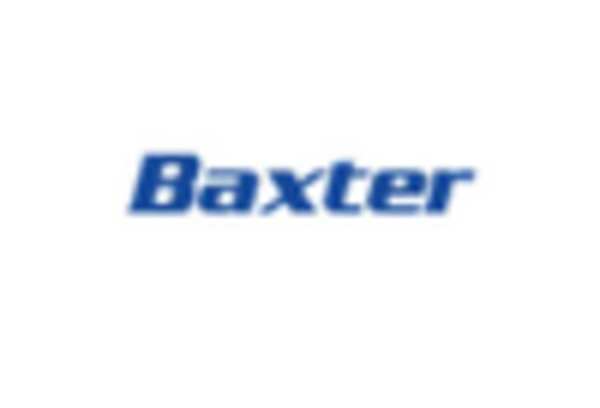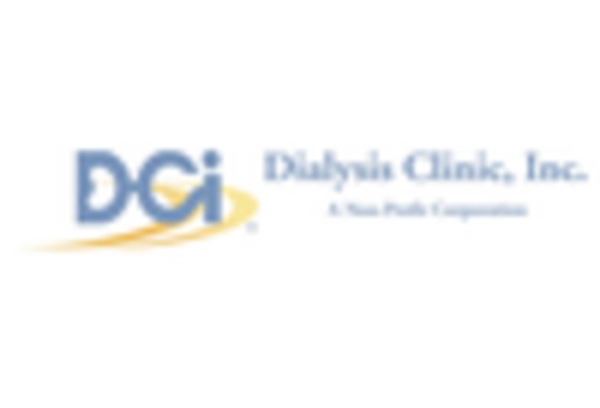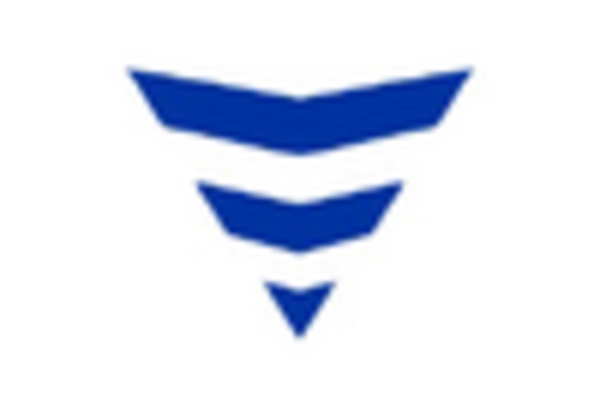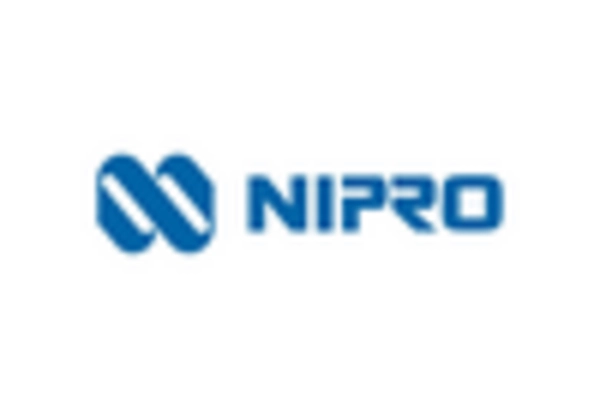Rising Geriatric Population
Germany's demographic shift towards an older population is significantly impacting the continuous renal-replacement-therapy market. The elderly are more susceptible to kidney-related ailments, which necessitates the need for effective renal therapies. Current statistics suggest that by 2035, individuals aged 65 and above will constitute over 25% of the total population. This demographic trend is likely to drive demand for continuous renal-replacement-therapy solutions, as healthcare systems adapt to cater to the specific needs of older patients. Consequently, the market is poised for growth, with healthcare providers focusing on tailored therapies that address the complexities associated with geriatric care.
Growing Awareness and Education
There is a notable increase in awareness and education regarding kidney health in Germany, which is positively influencing the continuous renal-replacement-therapy market. Campaigns aimed at educating the public about kidney diseases and the importance of early detection are gaining traction. Healthcare professionals are also receiving enhanced training on the latest renal replacement therapies, which is likely to improve patient outcomes. As awareness grows, more patients are likely to seek treatment options, thereby driving demand for continuous renal-replacement-therapy solutions. This trend suggests a potential increase in market penetration, as healthcare providers align their services with the evolving needs of patients.
Increased Healthcare Expenditure
The continuous renal-replacement-therapy market in Germany is benefiting from rising healthcare expenditures. The German government has been increasing its investment in healthcare infrastructure, with a focus on improving patient care and access to advanced therapies. In 2025, healthcare spending is projected to reach €500 billion, reflecting a commitment to enhancing treatment options for chronic conditions, including kidney diseases. This financial support is likely to facilitate the adoption of continuous renal-replacement-therapy technologies, as hospitals and clinics seek to provide high-quality care. As a result, the market is expected to expand, driven by both public and private sector investments.
Advancements in Medical Technology
Technological innovations in the continuous renal-replacement-therapy market are transforming treatment methodologies in Germany. The introduction of more efficient and user-friendly devices has enhanced patient outcomes and streamlined clinical workflows. For instance, recent advancements in filtration technology and biocompatible materials have improved the efficacy of renal replacement therapies. Furthermore, the market is witnessing a shift towards automated systems that reduce the burden on healthcare professionals. As hospitals and clinics invest in these advanced technologies, the continuous renal-replacement-therapy market is expected to experience substantial growth, with an estimated increase in market value projected to reach €500 million by 2027.
Increasing Prevalence of Kidney Diseases
The rising incidence of chronic kidney diseases (CKD) in Germany is a primary driver for the continuous renal-replacement-therapy market. Reports indicate that approximately 10% of the adult population in Germany suffers from some form of CKD, leading to a growing need for renal replacement therapies. This trend is likely to escalate as the population ages, with projections suggesting that by 2030, the number of patients requiring dialysis could increase by 20%. Consequently, healthcare providers are increasingly adopting continuous renal-replacement-therapy solutions to manage these patients effectively, thereby expanding the market's reach and potential.


